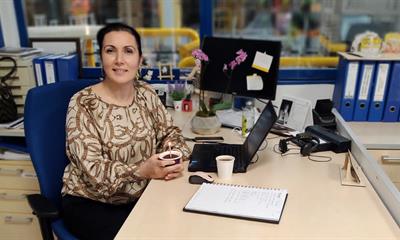
Traumatic Effects of Natural Disasters and Suggestions for All Ages
Traumatic events are the most unusual and unexpected events that are extremely frightening to a person, leaving the person in horror, and creating desperation; and the effects of these events are called psychological trauma. It is normal to give some unusual reactions after major traumatic events such as earthquakes. These reactions can be listed as follows;
- feeling unsafe, anger, guilt, hopelessness, feeling lost, uncomfortable dreams;
- forgetfulness, attention problems, confusion, difficulty in calculating, constantly thinking about the event;
- changes such as an increase or decrease in the appetite and sleep, not being able to rest;
- communication problems, a desire to be alone, a constant desire to tell what happened, crying spells, an increase in the use of alcohol/cigarettes/drugs, avoiding some places and activities.
All these reactions are expected to decrease and disappear in the first 15 days after the traumatic event. If these complaints do not decrease or continue to increase, a specialist should be consulted for support.
What can you do to feel better?
- The anxiety you experience in the first days after the incident can make you feel like you are going crazy or as if you are going to die. Don't forget; you are not the only one experiencing these feelings. Over time, these feelings will disappear as your anxiety decreases.
- You should not hesitate to talk to close friends or loved ones who will listen to you about your experience. The social support network has a healing effect; enabling to express feelings and thoughts without suppressing them.
- It can be challenging to enter indoor areas or be in crowded places after an earthquake. At such times, you can try to overcome this without avoiding it and by trying with someone next to you that you trust.
- You should stand aside gossip-like intentions such as supernatural comments and unnecessary media tracking.
- Alcohol, smoking, and tranquilizers should be avoided to relieve insomnia, loss of appetite, and anxiety that may be experienced in the first days.
- After such events, people may tend to look for someone to blame (because of you, because of me, etc.) You should avoid being the target of such rumors or self-talk.
- You should try to lower your high-level of self-expectations, such as "I should feel this way, how can I think this way, I am a mother/father, I have responsibilities", and try to remember that you are only human and are reacting naturally to an unexpected event.
- If the person is trapped under the debris,
- If any family member is trapped under the debris,
- If any friend is trapped under the debris,
- If a relative has passed away under the debris, regardless of the development period symptoms, support from a mental health professional should be sought.
Possible psychological traumatic effects on children and teenagers and some recommendations;
I asked my friend, Expert Psychologist Çağla Kav Doğançay; who is an expert in child psychology, for her support on this subject... In natural disasters such as earthquakes, not just adults, but all individuals from infancy to adolescence can experience trauma, so I give the floor to Çağla.
What we call psychological trauma is; the effects of the most unusual and unexpected events that are extremely frightening to a person, leaving the person in horror and creating desperation. There are many events in life that cause distress and sadness, but not all of them create psychological trauma. There is no descriptive distinction regarding psychological traumas in children and adults. Children can also give traumatic reactions to extraordinary events that occur outside the usual rhythm of their lives. These reactions can be in the act of general symptoms, as well as symptoms of each age and developmental period specific to the child. The child perceives the traumatic event as a threat both to his own life and to the lives of his loved ones.
Symptoms That Can Be Seen In Babies;
- Looking anxious and fearful,
- If there is potty training; bed-wetting in the form of regression,
- If having started talking; hesitation or stuttering in the form of regression,
- Fear of separation from parents,
- Difficulty falling asleep and difficulty to continue sleeping,
- Recurrent desire to play about the traumatic event.
Symptoms that Can Be Seen in Preschool Children;
- Increase in unrealistic fears (fear of dark, monsters, etc.),
- Difficulty in adapting to daily life,
- Showing aggressive behavior,
- Becoming introverted,
- Regressive behavior, baby talks, bed-wetting, and so on.
Symptoms That Can Be Seen in School-Age Children;
- Refusing to go to school,
- Nightmares, sleeping problems,
- Difficulty in concentrating,
- Aggressive behavior,
- Showing regressive behavior.
Symptoms that Can Be Seen in Teenagers;
- Negative thoughts about the future,
- Concentrating on the feeling of desperation,
- Acting like a grown-up,
- Increase in conflicts with parents,
- A decrease in the perception of danger can be seen.
All these responses are natural reactions to an unusual event. However, what is important here is; how long these reactions continue to take place. Indications are;
- If it continues for more than 2 weeks,
- If it makes the daily life of the child or teenager nonfunctional,
- If physical effects (abdominal pain, decreased appetite, etc.) continue to increase without decreasing the intensity, specialist support should be sought.
How should children be informed about earthquakes?
It is necessary to provide information about earthquakes according to the developmental periods of children.
Preschool children (3-11 years old);
- Since abstract concepts cannot be perceived in this period, it should be explained that "Earthquake" is a natural event (giving examples from other natural events - floods, fires, etc.) without fuelling fear by showing real photographs, videos, etc. and it should be explained how to take precautions in case it occurs. For example; “Remember, sometimes when it rains a lot, rainwater becomes like the sea? This is what we call the fact of nature. Other similar things can happen in our world; for example, earthquakes,
- if s/he has never experienced- the ground starts to shake very strongly. It shakes our homes, it shakes our cars, you can think of it just like a swing. Our home is safe. If there is a grown-up with you when the earthquake starts, you should go next to him/her immediately. If you are alone and at home, let's play together what we need to do. Saying this, you can playfully show your child the safe areas and how s/he needs to take a position. For example, Dwarf-Camel Game.
- if s/he has previously experienced- You can start by reminding the day of the earthquake by saying do you remember when the ground started to shake very strong. . It also shook our homes, it shook our cars, you can think of it as a swing. If there is a grown-up with you when the earthquake starts, you should go next to him/her immediately. If you are alone and at home, let's play together what we need to do. Saying this, you can playfully show your child the safe areas and how s/he needs to take a position. For example, Dwarf-Camel Game.
If in the teenage period;
- Since it is a period that abstract concepts make sense, details can be shared apart from the information adults need to know. For example; after giving information about the layers of the world and the relation of the earthquake with these layers and reminding the school information;
- if the earthquake was never experienced- Our country is full of these fault lines that I mentioned. We may face an earthquake at any moment. Our home is safe, but there are also precautions we need to take. If you are at home at the time of an earthquake the safe areas are: .......... . If you're outside, you need to protect yourself from buildings and wait in an open safe area to reach us.
- if it was experienced- Let's talk about the things we experienced in the last earthquake. A conversation can be made about what to do and what was missed out last time.
If the child has lost a relative in the earthquake (loss of parents, friend, etc.);
- The concept of death should be explained in a language suitable for the developmental period,
- Since religious concepts such as heaven and hell may cause different horror scenes in the children's minds, they should be avoided when describing death. It should be conveyed more like the fading of flowers in nature, and detailed information about the occurrence should not be shared.
- S/he can attend the funeral if s/he wishes.
- Since social media and news channels can maximize children's anxiety and fear, care should be taken that they do not receive information from people other than you.
Finally, if the child/teenager is trapped under the debris,
- If any family member is trapped under the debris,
- If any friends are trapped under the debris,
- If a relative has passed away under the debris, support from a mental health professional should be sought regardless of the developmental symptoms.












